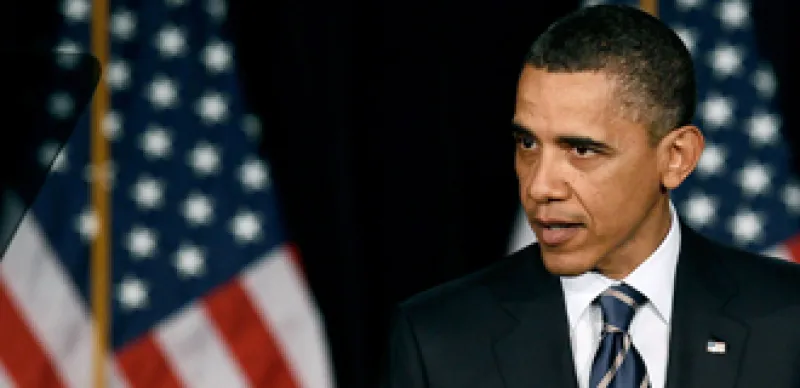
U.S. President Barack Obama speaks at George Washington University in Washington, D.C., U.S., on Wednesday, April 13, 2011. Obama vowed to cut $4 trillion in cumulative deficits within 12 years through a combination spending cuts and tax increases, setting the stage for a fight with congressional Republicans over the nation's priorities. Photographer: Mark Wilson/Pool via Bloomberg *** Local Caption *** Barack Obama
Mark Wilson/Via Bloomberg

